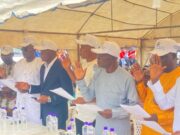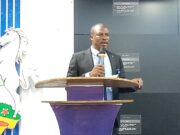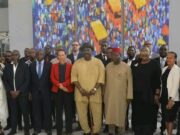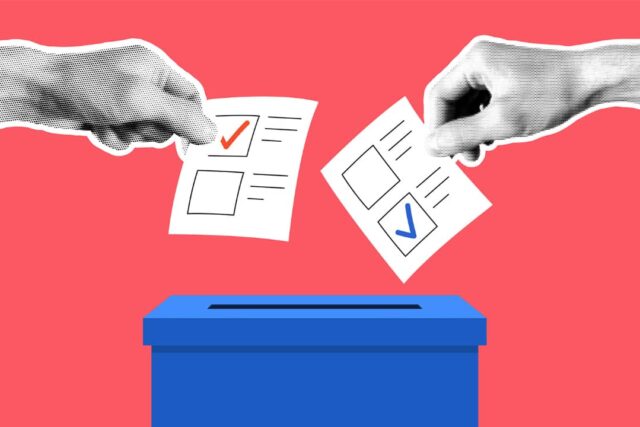By: Sunny Orbih
Veritas university Abuja.
Nigeria, the largest democracy in Africa, has made significant progress in strengthening its democratic institutions. However, a major challenge that continues to undermine its electoral process is the “bandwagon effect” on voting pattern; a phenomenon where voters base their choices on the outcome of previous elections rather than on candidates’ policies or qualifications. This pattern has weakened opposition parties, reduced political competition, and hindered the development of a truly representative democracy.
To address this issue, the Independent National Electoral Commission (INEC) which is the body saddled with the responsibility of conducting elections should consider conducting all elections; Presidential, National Assembly, Governorship, and State Legislative; on the same day. A bill to this effect is already before the National assembly for consideration for enactment into law. This reform would not only curb the bandwagon effect but also save costs and promote a more issue-based electoral process.
BANDWAGON EFFECT ON VOTING PATTERN: A CASE FOR CONDUCTING ALL ELECTIONS ON THE SAME DAY..
The bandwagon effect occurs when voters, influenced by earlier election results, begin to align themselves with the dominant party or candidate rather than making independent, well-informed choices. This effect is particularly pronounced, when politicians; some already elected under different party platforms; defects to the ruling party in control of the federal government in pursuit of political advantages.
While the Nigerian Constitution clearly states that an elected officeholder who switches parties must vacate their seat (as the mandate belongs to the party and not the individual) except there is a clear division or crisis in the party, this provision is often ignored in practice. This further weakens the opposition and consolidates power in the ruling party, reducing the effectiveness of democratic checks and balances.
Consequences of the Bandwagon Effect.
1. Weakening of Multi-Party Democracy:
A vibrant democracy requires strong opposition parties to provide alternative policies and hold the government accountable. However, when voters and politicians indiscriminately align with the ruling party due to previous election outcomes, opposition parties lose relevance, leading to reduced political competition and weakened governance.
2. Encouragement of Political Opportunism:
Many Nigerian politicians prioritize personal gain over public service, switching party allegiance to align with the government in power. This trend erodes public trust, discourages ideological consistency, and fuels a culture of political expediency rather than genuine representation.
3. Distorted Voter Behavior:
When elections are staggered, with the Presidential election coming first, the outcome of the Presidential Election significantly influences subsequent voting patterns. Many voters choose candidates for other positions based on the perceived strength of the ruling party, rather than evaluating their individual competence or policies.
The Case for Conducting All Elections on the Same Day
Holding all elections; Presidential, National Assembly, Governorship, and State Legislative simultaneously would have several advantages:
• Reducing the Bandwagon Effect: With all elections occurring on the same day, voters would be encouraged to assess candidates independently, rather than being influenced by previous results. This would foster a more balanced and competitive political environment.
• Enhancing Electoral Integrity and Voter Turnout: A single-day election would eliminate the psychological impact of earlier results on later elections, ensuring a level playing field for all candidates. It could also increase voter turnout, as citizens would be more motivated to participate in an all-inclusive electoral process.
• Cost Savings and Administrative Efficiency: Conducting multiple elections at different times incurs significant financial and logistical costs. A single-day election would reduce expenses related to security, logistics, and voter mobilization, making the process more efficient and resource-effective.
• Strengthening Opposition and Accountability: When elections for all offices occur simultaneously, opposition parties have a fairer chance to contest at all levels without being undermined by earlier presidential results. This would encourage a more competitive democratic system with diverse political representation.
Conclusion
Nigeria’s democracy has made great strides, yet the bandwagon effect remains a major obstacle to a fair and competitive political system. To counter this challenge, INEC should consider conducting all elections; Presidential, National Assembly, Governorship, and State Legislative; on the same day.
This strategic reform would curb political opportunism, enhance multi-party democracy, and ensure that voters make independent, well-informed choices. Additionally, it would reduce electoral costs, strengthen opposition parties, and promote a more accountable and responsive government. By embracing this approach, Nigeria can create a more stable and equitable democratic system that truly represents the will of its people.




























